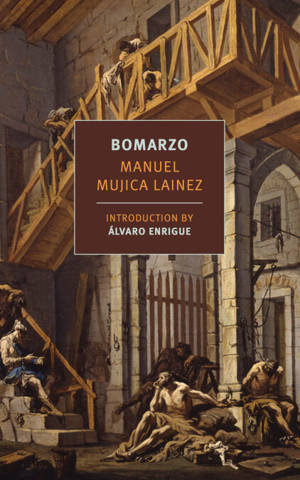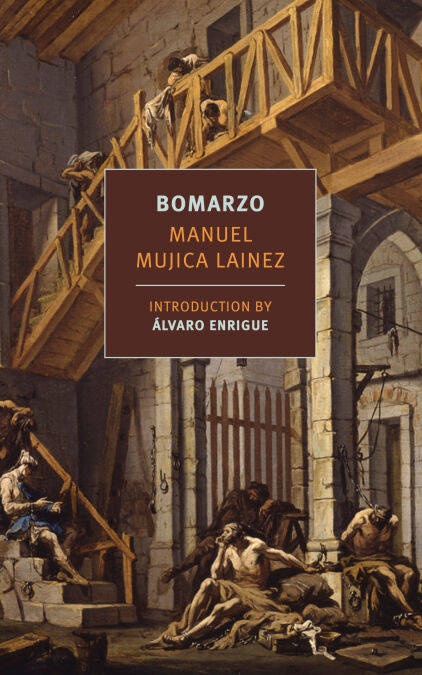
- Afhalen na 1 uur in een winkel met voorraad
- Gratis thuislevering in België vanaf € 30
- Ruim aanbod met 7 miljoen producten
- Afhalen na 1 uur in een winkel met voorraad
- Gratis thuislevering in België vanaf € 30
- Ruim aanbod met 7 miljoen producten
Zoeken
Omschrijving
“[Bomarzo] is a novel that will make any reader happy.... [A] novel to be read aloud, with the whole family gathered around.” —Roberto Bolaño
A lavishly written gothic historical fantasy novel that centers around Pier Francesco Orsini, the tortured duke of Bomarzo and creator of the Italian town’s famously bizarre “Garden of the Monsters.”
Forty miles north of Rome, near the village of Bomarzo, Pier Francesco Orsini created a park of monstrous statuary in which the nightmares of the Renaissance stand preserved in stone. In Bomarzo, Manuel Mujica Lainez—one of the major Argentine novelists of the twentieth century—re-creates this dark and legendary duke as a briliant memoirist. From beyond the grave, in a city that sounds suspiciously like Mujica Lainez's own Buenos Aires, Orsini—who now knows his Freud and has read Lolita—looks back at the trials and travails of his sixteenth-century life.
Bomarzo is a historical novel in the grand manner, a first-person portrait of a hunchback bullied by his family and determined to prove a villain. It is also a commentary on such historical fictions. But above all it is an immersive story told in a sumptuous style—like one of Poe's Italian tales rewritten by Proust—as Gregory Rabassa's translation beautifully conveys.
A lavishly written gothic historical fantasy novel that centers around Pier Francesco Orsini, the tortured duke of Bomarzo and creator of the Italian town’s famously bizarre “Garden of the Monsters.”
Forty miles north of Rome, near the village of Bomarzo, Pier Francesco Orsini created a park of monstrous statuary in which the nightmares of the Renaissance stand preserved in stone. In Bomarzo, Manuel Mujica Lainez—one of the major Argentine novelists of the twentieth century—re-creates this dark and legendary duke as a briliant memoirist. From beyond the grave, in a city that sounds suspiciously like Mujica Lainez's own Buenos Aires, Orsini—who now knows his Freud and has read Lolita—looks back at the trials and travails of his sixteenth-century life.
Bomarzo is a historical novel in the grand manner, a first-person portrait of a hunchback bullied by his family and determined to prove a villain. It is also a commentary on such historical fictions. But above all it is an immersive story told in a sumptuous style—like one of Poe's Italian tales rewritten by Proust—as Gregory Rabassa's translation beautifully conveys.
Specificaties
Betrokkenen
- Auteur(s):
- Vertaler(s):
- Uitgeverij:
Inhoud
- Aantal bladzijden:
- 688
- Taal:
- Engels
Eigenschappen
- Productcode (EAN):
- 9781681379425
- Verschijningsdatum:
- 4/08/2025
- Uitvoering:
- E-book
- Beveiligd met:
- Adobe DRM
- Formaat:
- ePub

Alleen bij Standaard Boekhandel
+ 27 punten op je klantenkaart van Standaard Boekhandel
Beoordelingen
We publiceren alleen reviews die voldoen aan de voorwaarden voor reviews. Bekijk onze voorwaarden voor reviews.








